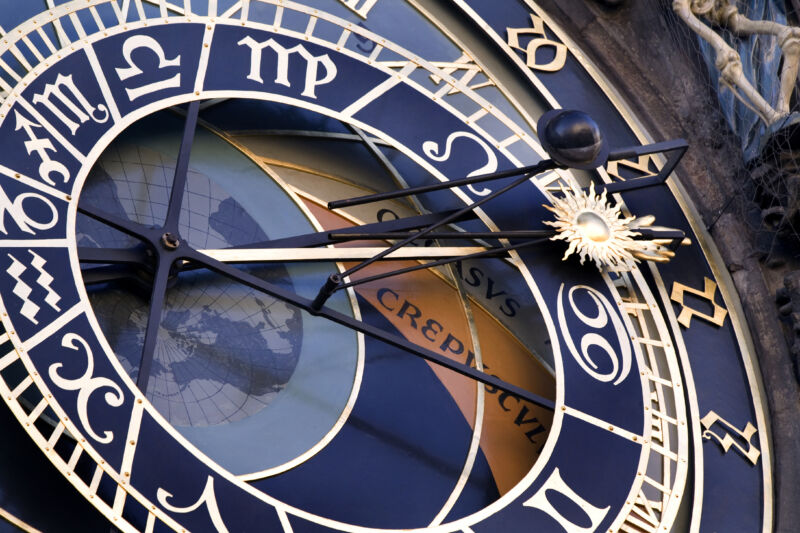There are not many things you can get Facebook, Google, the United States, France, and Linus Torvalds to agree on, but one of them has come to pass.
A near-unanimous vote on Friday in Versailles, France, by parties to the International Bureau of Weights and Measures (BIPM in its native French) on Resolution 4 means that starting in 2035, the leap second, the remarkably complicated way of aligning the Earth's inconsistent rotation with atomic-precision timekeeping, will see its use discontinued. Coordinated Universal Time, or UTC, will run without them until 2135. It was unclear whether any leap seconds might occur before then, though it seems unlikely.
The assumption is that within those 100 years, time-focused scientists (metrologists) will have found a way to synchronize time as measured by humans to time as experienced by our planet orbiting the Sun. But most people will not notice any difference at all, even as the time difference could reach up to one minute by the end of that 100 years.
"The connection between UTC and the rotation of the Earth is not lost, UTC remains related to Earth," Dr. Patrizia Tavella, head of BIPM's time department, told Agence France-Presse (AFP).
Russia's BIPM representatives voted against the resolution, and Belarus abstained. Tavella told AFP that Russia's opposition was not "on principle," but it wanted to delay the leap second removal until 2040. GLONASS, Russia's satellite positioning system, incorporates leap-second-like adjustments and will need to be reworked. A 2035 date was a compromise with other entities that wanted to move up the leap second removal, Tavella told AFP.
System administrators everywhere, especially at larger companies, will never know what catastrophes awaited them with the next leap second. Leap seconds in 2012 and 2017 caused multi-hour outages at companies including Reddit, Qantas, and Cloudflare. Many companies implemented a version of "leap smearing" to smooth out a leap second addition into micro-seconds spread across the globe throughout a day.
Meta was the latest voice to speak against leap seconds over the summer. The 27 leap seconds that have been applied since their introduction in 1972 were "enough for the next millennium," its engineers wrote in a blog post. They also raised the specter of a negative leap second, which could subject networks to new versions of time-syncing torture.
While the BIPM's vote set a policy for disregarding leap minutes, the entity that actually coordinates and disseminates UTC, the International Telecommunication Union (ITU), could potentially intercede. Felicitas Arias, a former BIPM time director, told the journal Nature that the ITU's final say is "the thing that makes us a little bit nervous." Yet Arias told The New York Times that negotiations between the BIPM and ITU had her convinced of success.
The ITU's next decision-making conference takes place in late 2023 in Dubai, United Arab Emirates, around when the contract for ITU to maintain UTC time expires. After that, the leap second's time will have likely come.



3175x175(CURRENT).thumb.jpg.b05acc060982b36f5891ba728e6d953c.jpg)
Recommended Comments
There are no comments to display.
Join the conversation
You can post now and register later. If you have an account, sign in now to post with your account.
Note: Your post will require moderator approval before it will be visible.